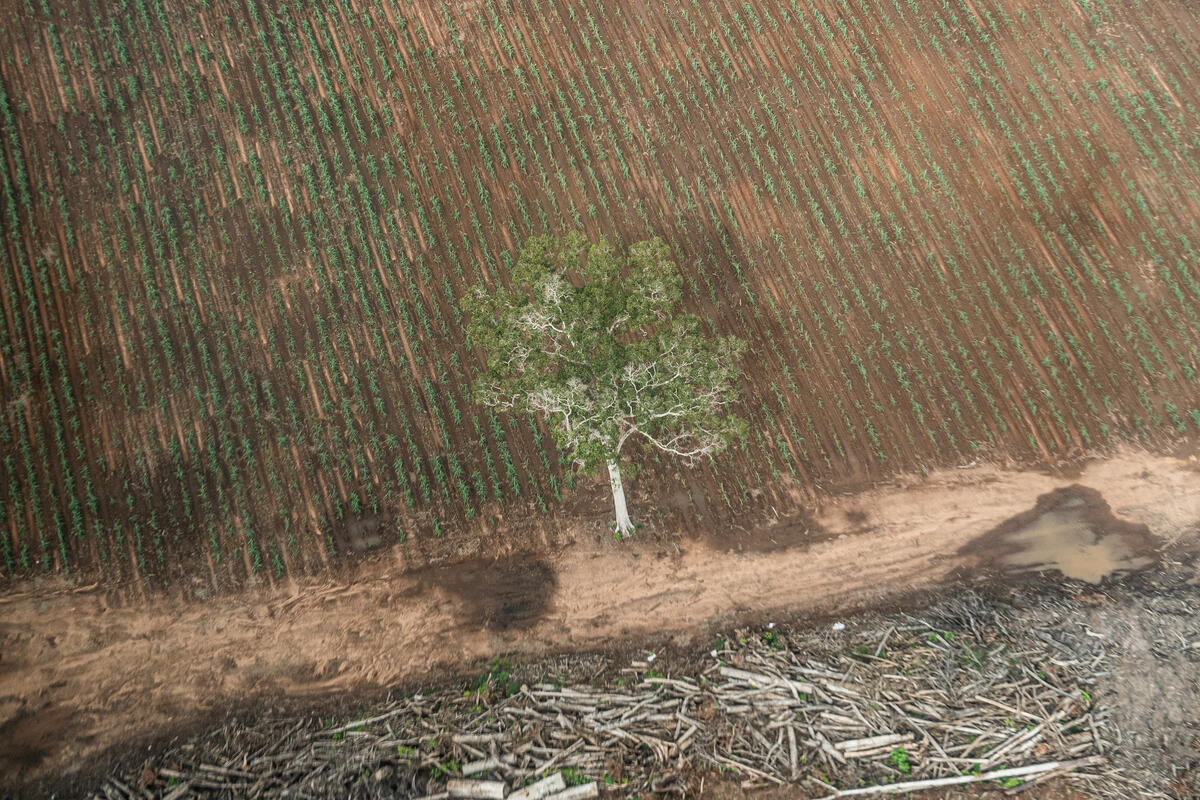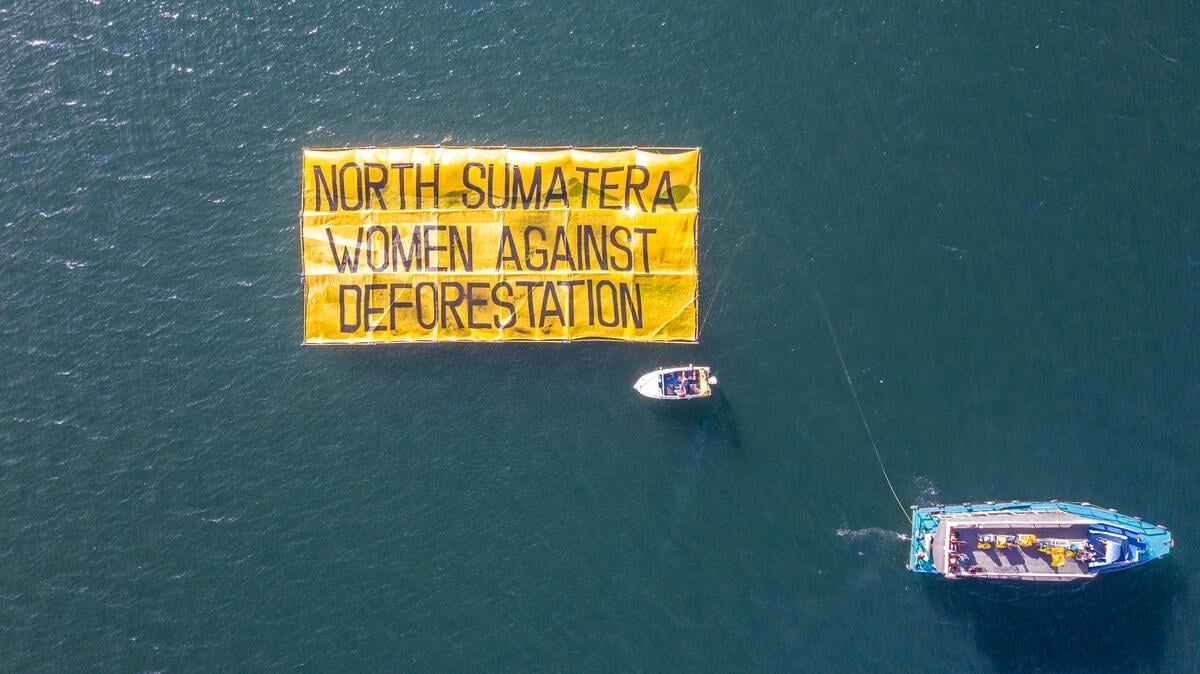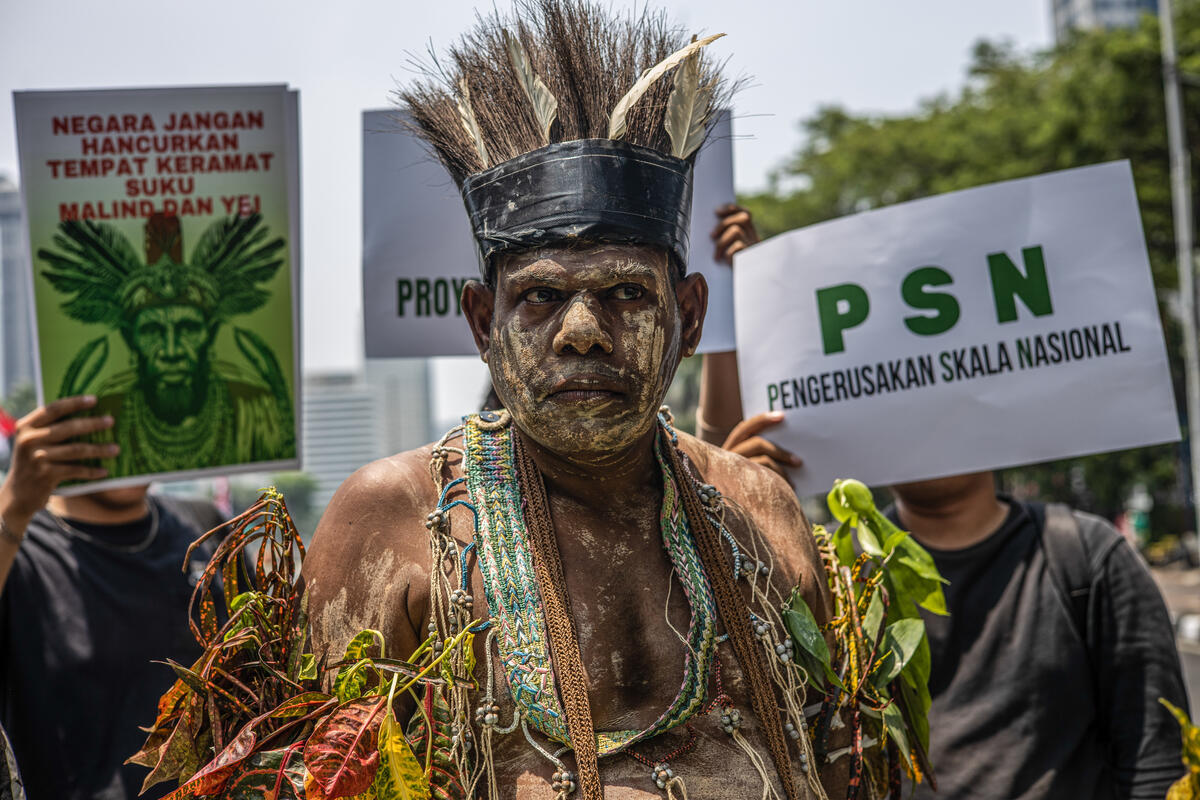Jakarta — The IOI Group published a new Palm Oil Sustainability Policy and Sustainability Implementation Plan on 8 August 2016. Greenpeace Indonesia provided several rounds of feedback on earlier drafts of the policy. Despite this, the new policy still falls short of the commitments we expect of responsible palm oil producers and traders. As a result, Greenpeace notified the IOI Group that we would cease all engagement with the company.
IOI has unlawfully cleared several hundred hectares outside of its concession boundaries, as well as HCV and HCS forest cleared inside its concessions; this forest has yet to be restored. It continues to drain peatlands in and around its concession, increasing the risk of further fires in the Ketapang peat landscape.It has yet to publish a comprehensive plan to ensure its third-party suppliers have stopped clearing rainforests and peatlands. Equally important is IOI’s failure to respect the customary rights of the Long Teran Kanan communities in Sarawak, East Malaysia, whose complaint remains unresolved after almost 6 years.
IOI’s new policy and plan does not resolve the issues, or adequately mitigate the risks of deforestation, peatland drainage, fires and human rights abuses in its supply chain. To resume trade relations with IOI at this time would expose companies to environmental and human rights risks. We advise that all contractual sourcing and business relationships with the IOI Group and/or IOI Loders Croklaan remain suspended until the IOI Group has published a credible policy and implementation plan, along with evidence of real change on the ground.
To be credible, a policy from the IOI Group will need to address the following gaps:
- The policy lacks measurable, time-bound objectives and milestones. For example, it is still unclear by when the IOI Group intends to comply with its own policies. While the implementation plan has begun to map out the next steps, each commitment in the policy needs a clear deadline for delivery. As part of a broader commitment to operate in an open and transparent manner, the IOI Group’s progress towards these milestones and objectives should be regularly audited by an independent third party.
- There is no mechanism to ensure that deforestation, peatland destruction and human rights abuses are eliminated from the IOI Group’s supply of traded oil purchased from third party suppliers. The first step must be to demand a moratorium on expansion and plantation development from all companies in its supply chain. This expectation should be conveyed to all suppliers (both direct and indirect – e.g. to the groups controlling mills within its supply chain) and there should be a transparent, time-bound process for dealing with suppliers that refuse to comply.
- While the IOI Group has now agreed to publish its own concession maps (as required by the RSPO), there is no requirement for third-party suppliers to do likewise. The company must set a clear deadline for all suppliers to publish their concession maps as a condition of continued trade. The IOI Group should also publish HCS, HCV and other social and environmental assessments for its own concessions, and require the same of its suppliers.
- It is still unclear how the IOI Group intends to monitor or verify that the producers in its supply chain have complied with the policy across their operations. The company should commit to conduct satellite monitoring using the best-available environmental and spatial data to identify suppliers that persist in clearing forests or developing on peatlands. This should complement mill-level risk assessments, such as those currently undertaken by IOI Loders Croklaan.
- The IOI Group has yet to adopt strong standards to protect peatlands. The company is just starting to move in the right direction in Ketapang, West Kalimantan, yet it makes no such commitment for the other landscapes in which it has concessions or in which its suppliers operate. The company should commit to phase out drainage-based development and take a landscape approach to protect the forest and peatlands affected by its palm oil supply. This commitment would bring it into line with leading players in Indonesia’s pulp sector, which operate in many of the same landscapes as mills or concessions that supply the IOI Group.
- Finally, we urge the IOI Group to consult with NGOs specialising in human rights, such as Verite, Finnwatch, The Indigenous Peoples Network Malaysia (JOAS), Rainforest Action Network and Forest Peoples Programme. The IOI Group should make an explicit commitment to resolve its longstanding conflict with the Long Teran Kanan community of Sarawak, East Malaysia to the satisfaction of both parties (IOI-Pelita and the community).
Note to the Editor:
On 5 August 2016, Greenpeace Indonesia issued the following Update for palm oil buyers and customers / former customers of the IOI Group
Media contacts:
Annisa Rahmawati, Forest Campaigner, Greenpeace Indonesia
E: [email protected], M: +62 8111097527
Sol Gosetti, International Communications Coordinator, Indonesia Forest Campaign
E: [email protected], M: +447380845754



